SUMMARY
This is AI generated summarization, which may have errors. For context, always refer to the full article.
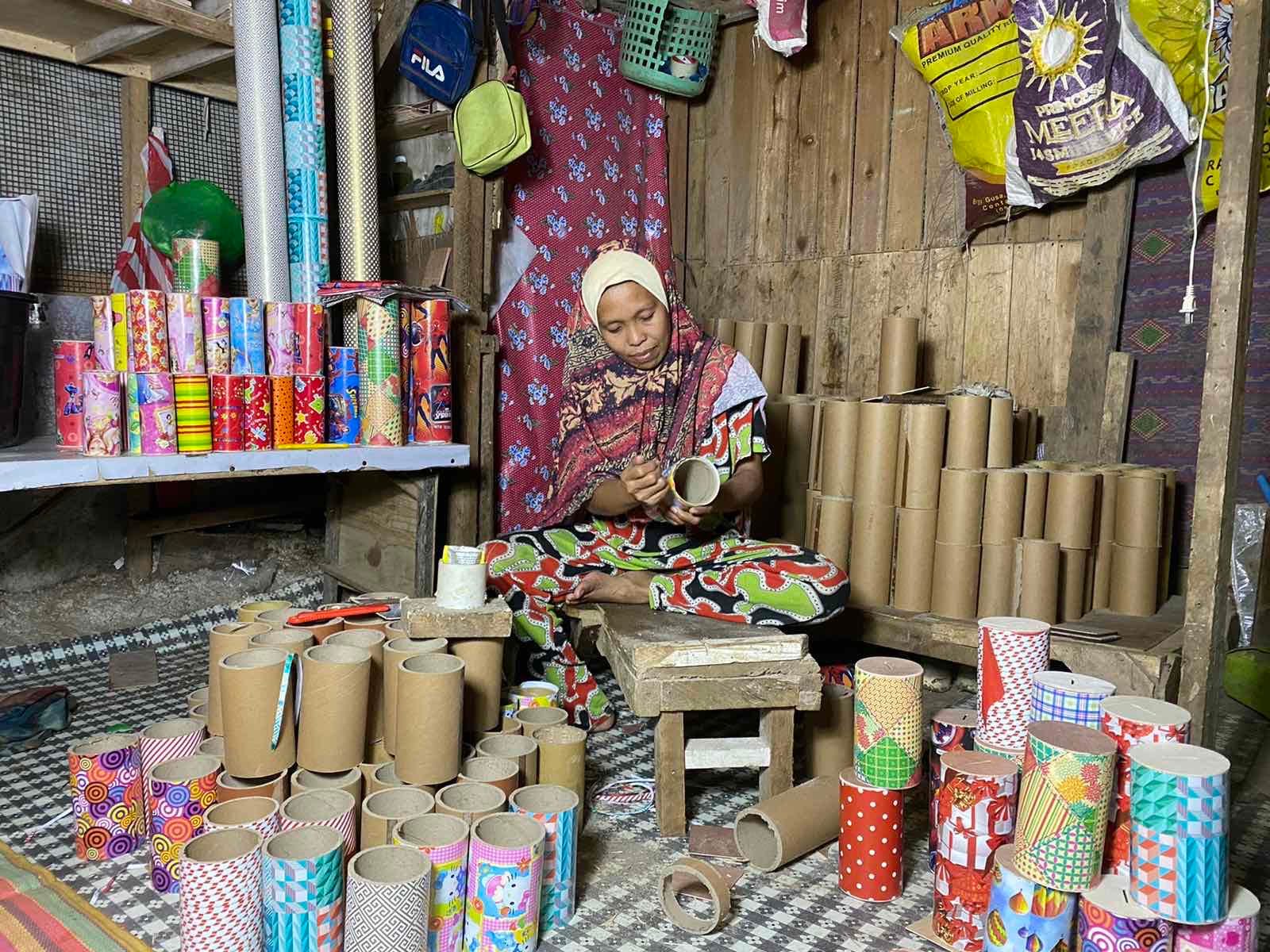
Fatima Mindalano sticks brightly patterned paper on cardboard coin banks, her source of income as an internally-displaced resident of Marawi City.
She’s gotten back to her feet partly with the P15,000 cash assistance from the Bangsamoro government, which has promised a government “felt” by the people of a region racked by conflict and poverty.
“Nakakatulong ang BARMM sa amin dahil nabigyan nila ng tulong ang mga maliliit na negosyante katulad namin,” she said from the floor of her makeshift home in Barangay Tampilong, Marawi City. (BARMM helped because they’ve given some assistance to small business owners like us.)
But she admitted life is still hard because her one wish to return to her home in Marawi’s most devastated portion still seems out of reach.
“It’s not easy to have to think, every time I wake up, where will we get food to eat?” said Fatima, a mother of 9.
Fatima is just one of the nearly 4 million Bangsamoro residents who were promised a better life should the Bangsamoro Autonomous Region in Muslim Mindanao (BARMM) come into existence.
On Thursday, January 21, the BARMM turns two and the pressure to deliver is more intense for its interim government, the Bangsamoro Transition Authority (BTA).
Only a year and 5 months are left for the BTA to fulfill tasks set forth by the Bangsamoro Organic Law – tasks like creating foundational laws of the land, setting up government offices that deliver basic services like healthcare and education, and providing reparations for families who suffered from conflicts.
But the work is not only for the BTA. The national government also plays a critical role in the process since it’s supposed to turn over power and resources to the new regional government, and provide some of its funds.
The year 2019, when the BARMM was created, was practically a “waste of time,” said Mary Ann Arnado of Mindanao Peoples Caucus, because the BTA had only the last budget of the defunct Autonomous Region in Muslim Mindanao to work with. (READ: Can’t afford to fail: Bangsamoro region weathers birth pains)
A year later, February 2020, some of the region’s first block grant began to come in, but the COVID-19 pandemic happened.
“Covid came, we were caught flat-footed,” said Mohagher Iqbal, education minister and peace implementing panel co-chairperson, in a Rappler Talk interview.
The pandemic meant a delay in the hiring of much-needed government personnel because job interviews could not be done physically and efficiently.
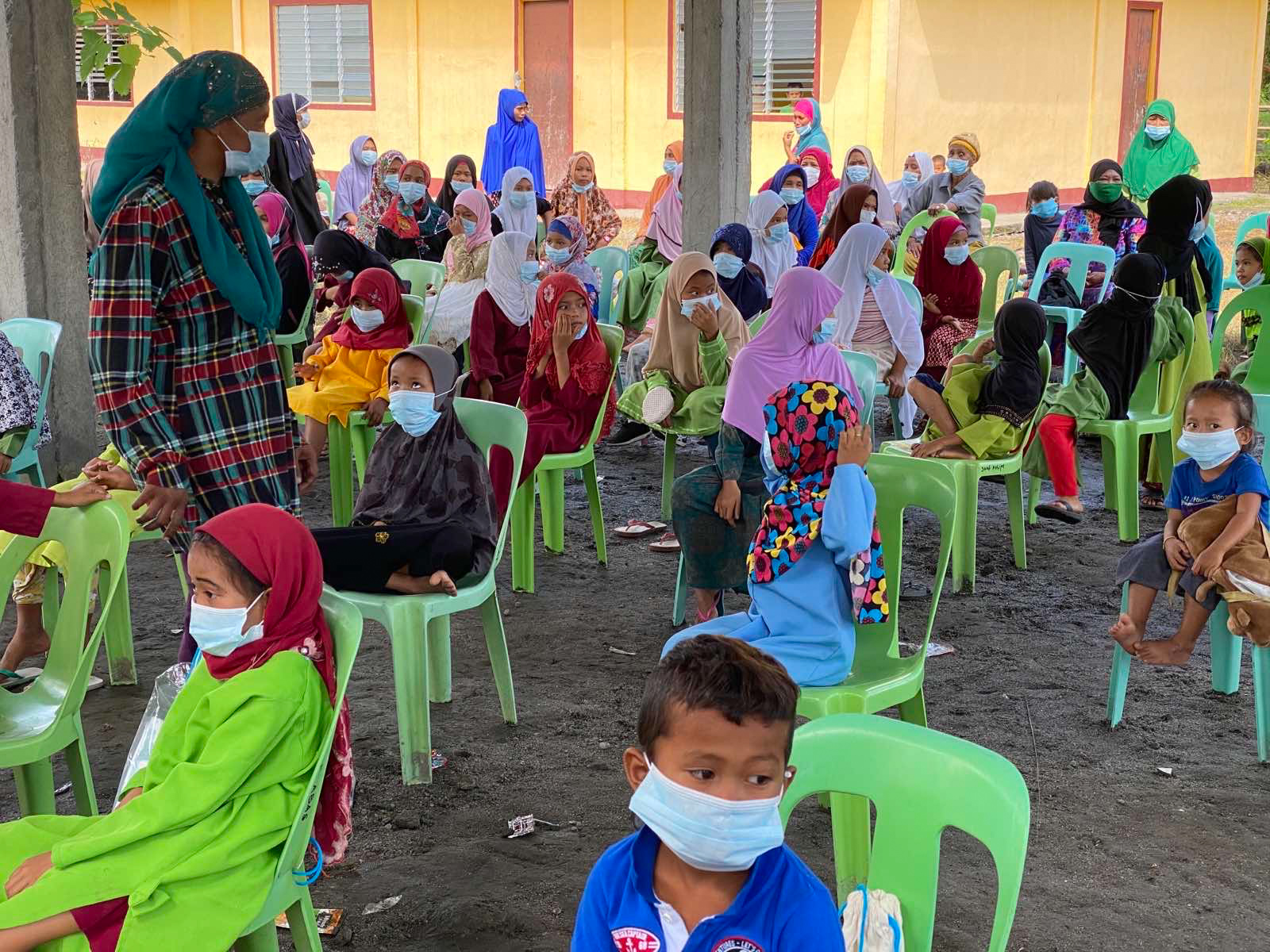
Projects the BTA lined up for 2020 could not be completed because personnel had difficulty traveling to different parts of the region to check on them.
For instance, a solid waste management project in Tawi-Tawi required a site inspection to catalyze a new tranche of funding for its completion, but it could not be done due to the lockdown, said Interior Minister Naguib Sinarimbo.
The delays compounded each other. No new personnel also meant difficulty in implementing programs or delivering services.
Longtime critics of the BARMM, like Sulu Governor Sakur Tan, have pointed to these shortcomings. (Sulu voted against the law creating BARMM, but the vote did not matter as the rest of the covered provinces supported it.)
“BARMM did not perform. We have so many offices that are empty,” he told a House committee on Wednesday, January 20, adding that out of 600 vacancies in his province, only 64 slots have been filled.
He claimed the pandemic is just a “very convenient excuse” for the BTA’s failures.
Even before the pandemic, the BTA was already having difficulty managing the overload of job applications on its online job portal. Some 300,000 applications came in for only 4,000 available positions.
All-systems-go for 2021
By the end of 2020, half of the P63 billion block grant was unspent. Members of the BTA proposed extending the validity of the P30 billion so it could be used in 2021.
Because the BTA also passed a P76-billion budget for 2021, the pressure is on for it to translate all that money into tangible benefits and services to the region’s people.
“A lot of the timelines we’ve set are essentially not within the reach of the Bangsamoro government so suddenly, we have a lot of catching up to do. That’s the mood for now,” Sinarimbo told Rappler on January 18.
But he promised that this year, the Bangsamoro government will be more “felt” by the people.
“What people can now expect is that services will now go down to the level of the barangays,” said Sinarimbo.
The 2021 budget provides funding for barangay health officers, whereas previously, health officers could only be found in municipalities or towns.
These new health officers will be bringing medicines to barangays as well, improving healthcare access to the region’s smallest unit of governance.
The education ministry got the lion’s share of the budget, with P23 billion. Students in the region struggle with a combination of learning through physical modules and online classrooms given little to no internet connectivity in remote areas. President Rodrigo Duterte has banned face-to-face classes until a vaccine significantly reduces coronavirus transmissions in the country,
A significant chunk of the budget has also been devoted to building more village roads and community buildings like town halls and barangay halls.
These barangay halls would serve as landmarks from where people can access Bangsamoro government services, said Sinarimbo. Around 400 of the region’s 2,580 barangays still lack barangay halls.
The need for roads and community halls had been identified by mayors themselves and their inclusion in the regional budget, through a new system of consultation for generating development priorities, is a major accomplishment in the BTA’s eyes.
“The priorities of the region are determined not by anyone else but by the Parliament, ministries, and local government units, as well as the constituents of region… Unlike before when priorities of the region are determined by Congress or departments,” said Sinarimbo.
Turnover woes
But half of the battle in the transition is turning over powers and resources previously held by the national government to the Bangsamoro government.
This meticulous process, critical to the Bangsamoro’s goal of self-determination, requires the active participation of the national government, led by Mindanaoan Duterte, who had promised a smooth transition.
It has been anything but. Several turnover provisions in the BOL remain unfulfilled or incomplete, or else were done past the deadline set by law.
For instance, the Intergovernmental Relations Body (IGRB), necessary for coordinating and resolving turnover issues, was convened only in December 2019 or nearly a year after the BOL ratification.
It was the national government side that took its time since the BTA had already named its members in July 2019.
The Joint Body for the Zones of Joint Cooperation was not convened within 30 days of the ratification. This body is supposed to formulate policies governing the management of the Sulu Sea and Moro Gulf and finalize a map of Bangsamoro waters. It’s necessary for finalizing the region’s taxing jurisdiction and thus has bearing on its revenue code, one of the major deliverables of the BTA.
The body, whose members include the Department of Environment and Natural Resources and the National Mapping and Resource Information Authority, met only in June 2020, or over a year after the deadline.
The transfer of newly-devolved national government agencies have not yet been completed, with negotiations between agencies and ministries still underway.
While there is already a BARMM office of the National Police Commission, Chief Minister Murad Ebrahim was thrice not consulted on who would be the regional police director, a step stipulated in the BOL.
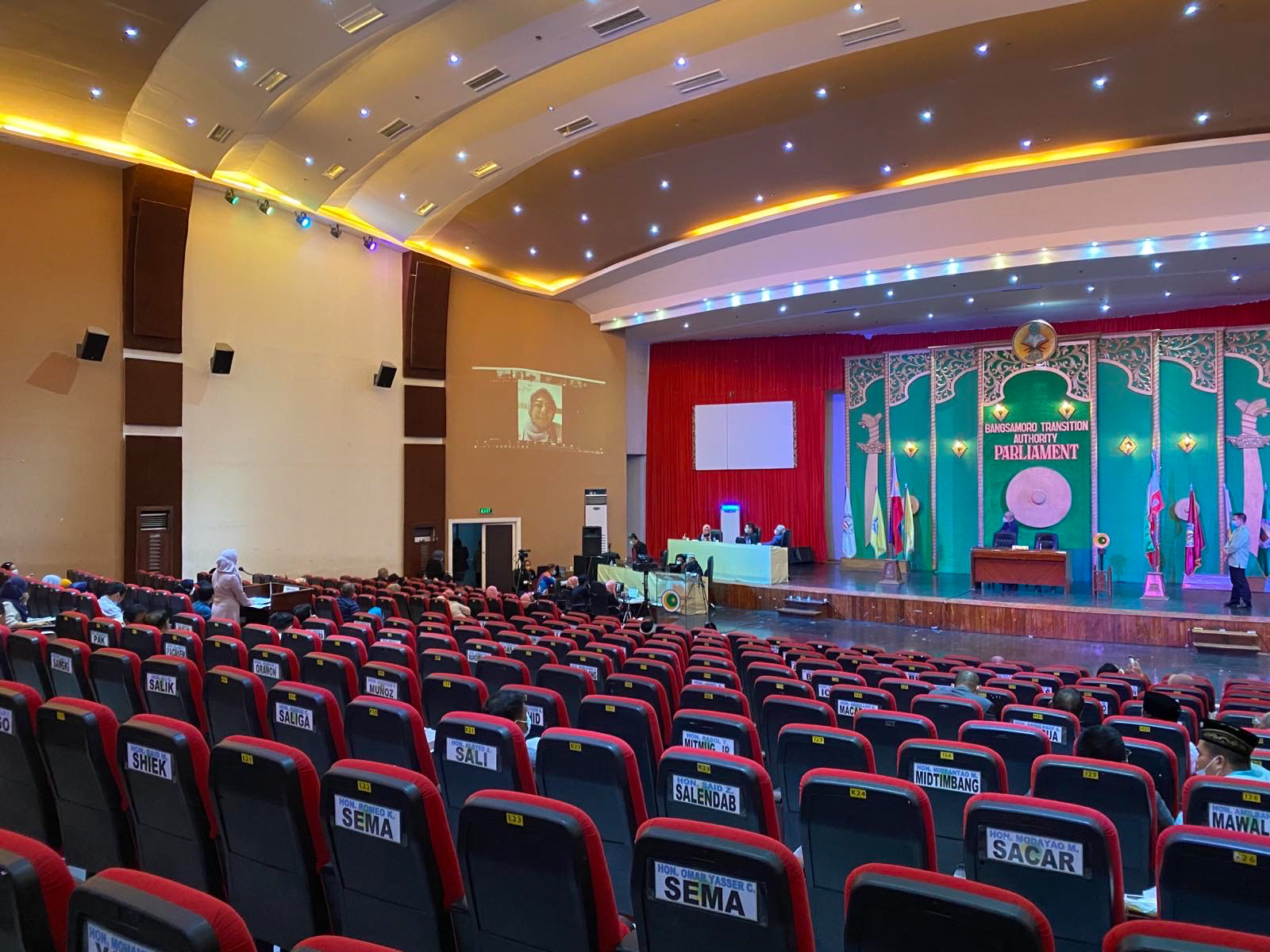
Despite taking a long time to convene, the IGRB has been “very effective” in ventilating issues and prodding slow national government agencies to act on BOL deliverables, said Sinarimbo.
President Duterte himself has joined some of these IGRB meetings. Through these meetings, they’ve discussed Marawi rehabilitation and the share of the two governments in the exploitation of oil and gas reserves in the Bangsamoro.
Duterte is against expected to meet with the IGRB on Thursday, January 21, date of the BOL anniversary itself.
IGRB meetings helped speed up the transfer of national government offices inside the BARMM.
But Simarimbo said there’s a “lot of room for improvement” for the national government.
One commitment the national government has been slow on delivering are the benefits for decommissioned Moro Islamic Liberation Front (MILF) – part of a process called normalization.
Giving combatants a chance
In the MILF’s agreement with the national government, the national government committed to helping former MILF combatants lead productive civilian lives, a way to convince them to lay down their arms.
Only 12,145 combatants out of 40,000 have been decommissioned but even these have not yet received all of the benefits promised them.
According to Iqbal, only the P100,000 cash grant has reached these former rebels, out of a P1 million benefit package that includes livelihood, scholarships, and housing.
One thing bogging down the delivery of such benefits is the absence of national government offices in areas where the MILF camps are.
For instance, if the Department of Agriculture wants to bring fertilizers to combatants in Camp Abubakar to help them become farmers, the DA needs to “borrow” personnel from the DA in Central Mindanao or Northern Mindanao because they have no office in the area.
Another problem is the lack of ready funding. There is no item in the national budget specifically for decommissioned combatants. Instead, the Office of the Presidential Adviser on the Peace Process (OPAPP) has to scrounge around and ask various government departments to provide funding from their budgets.
“It’s not sufficient. There’s no single entity in the national government lodged with both the mandate and resources to deliver on government committments to normalization. It’s scattered throughout different departments,” said Sinarimbo.
Efforts have also “barely scratched the surface” in transforming MILF camps into productive communities that will have no reason to resort to violence.
Because of this sluggishness, Iqbal said only 30% of the normalization deliverables have been achieved.
“Whatever has not been implemented in the normalization track is the responsibility of the Philippine government,” said Iqbal.
Meanwhile, the government lays the blame partly on the MILF itself.
“The pace of decommissioning is affected by the delayed submission of the MILF of the list of combatants and weapons,” said the office of OPAPP Assistant Secretary Wilben Mayor.
They said the complete list should have been submitted earlier but instead MILF has been giving names “piecemeal.”
Closing the gap
The MILF-led BTA has been nimble enough to make adjustments to the pandemic.
Parliament rules have been tweaked to allow sessions to be held online. This is all the more critical since the Parliament has managed to pass only one code (the Administrative Code) among 7 priority laws for legislation.
Interviews for hiring personnel are being done online, though this has been difficult to do for aspiring hirees in remote areas.
To make up for the slow delivery of benefits for combatants, Chief Minister Murad launched on January 18, conditional cash assistance for 10,000 combatants.
But the MILF says nothing but a 3-year extension can really close the gap.
Now, campaigning for this extension is a priority of the MILF leadership. Duterte himself has backed this, putting pressure on his allies in Congress to deliver the necessary amendment to the BOL.
Despite the curve balls thrown during the transition period, Iqbal said the 2nd founding anniversary of the BARMM is a “signal that in spite of the challenges, we are moving forward steadily.”
“The challenges are still there and most important, looking back, we’ve done something and it’s just a matter of continuing the journey,” he said.
The BTA has their work cut out for them. Aside from the pandemic, there is opposition to an extension of their powers. Influential local politicians like Sulu’s Sakur Tan and Cotabato City Mayor Cynthia Guiani are not always cooperative.
The BTA, dominated by people from mainland provinces, also needs to be more felt in island provinces. Tan, Sulu’s kingpin, said Duterte visits his province more often than BTA members.
An entire region’s dreams and potential now depend on how well the BTA and the Duterte administration can navigate the unexpected and get the work done together. – With a report from Taj Basman/Rappler.com
Add a comment
How does this make you feel?

![[OPINION] A challenge to Marcos government and MILF](https://www.rappler.com/tachyon/2024/03/TL-Challenge-Marcos-MILF-March-25-2024.jpg?resize=257%2C257&crop_strategy=attention)
![[OPINION] Political parties must embody Bangsamoro people’s aspirations](https://www.rappler.com/tachyon/2024/03/imho-bangsamoro-embodiment-03212024.jpg?resize=257%2C257&crop_strategy=attention)
![[OPINION] A long and winding road to peace in Bangsamoro](https://www.rappler.com/tachyon/2023/05/TL-Long-winding-road-peace-bangsomoro-May-6-2023.jpg?resize=257%2C257&crop=281px%2C0px%2C720px%2C720px)
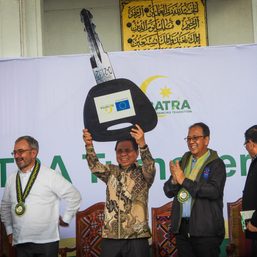
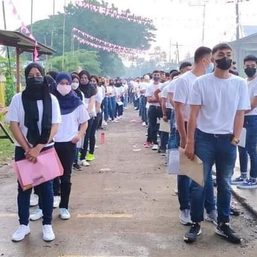
There are no comments yet. Add your comment to start the conversation.